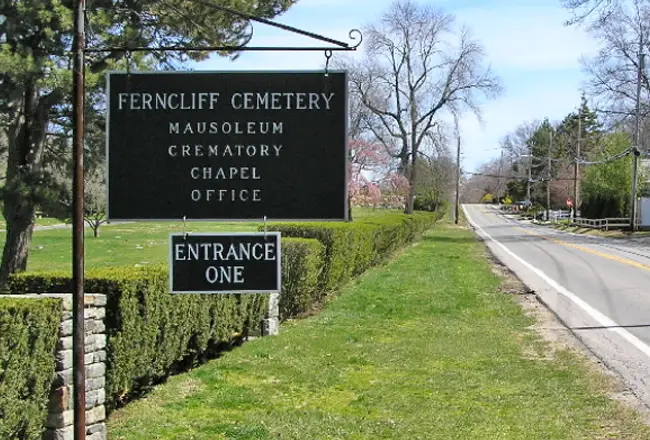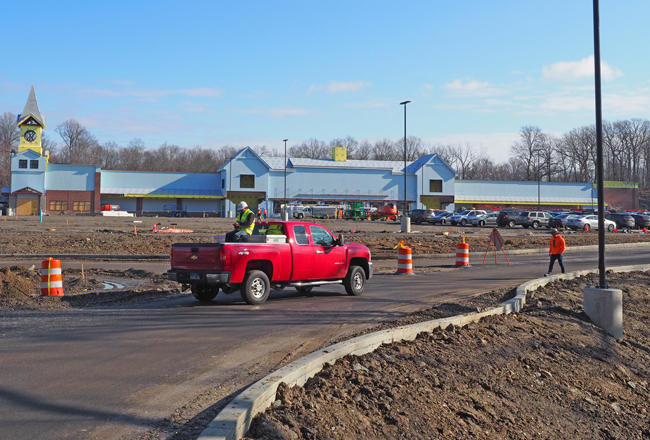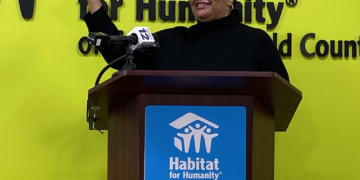A state appeals court has upheld a town of Greenburgh decision to deny Ferncliff Cemetery use of a 12.5-acre parcel for cemetery purposes.
The Second Appellate Division ruled on May 20 that Ferncliff Cemetery Association abandoned the right to operate a cemetery when it sold the parcel in 1908, and that buying it back in 1971 did not revive its right.
The land “loses its sacredness as a resting place for the dead,” the justices stated, citing legal precedents, when a cemetery is abandoned or the land is sold or partitioned.
 The decision does not affect operations of Ferncliff Cemetery, across the street from the 12.5-acre parcel, on Secor Road.
The decision does not affect operations of Ferncliff Cemetery, across the street from the 12.5-acre parcel, on Secor Road.
Ferncliff Cemetery was established in 1902, when the Westchester County Board of Supervisors granted it the right to use its property for “cemetery purposes.”
In 1908 the property was divided into two parcels: 63 acres on the north side of Secor Road, where the cemetery has operated continuously, and 33 acres on the south side.
The smaller parcel was sold to an individual, and eventually most of the land was developed for housing, leaving 12.5 acres.
In 1963, Greenburgh enacted a zoning regulation that prohibited cemeteries from expanding.
In 1971, Ferncliff reacquired the 12.5-acre, residentially zoned parcel.
The cemetery wanted to build a maintenance facility in 1994 but withdrew its request when neighbors objected. In 2001 it got approval to build a caretaker”™s cottage.
Ferncliff tried to replace the cottage in 2013 with a larger structure that included a garage for storing “equipment, materials and supplies associated with the caretakers”™ duties.”
The building inspector denied a building permit, and the Greenburgh Zoning Board of Appeals backed the decision.
The cemetery did not own the property in 1963 when cemetery expansions were banned, the board ruled. A new caretakers”™ cottage could be built, but not the garage.
Ferncliff appealed, arguing that it been granted a perpetual and irrevocable franchise to operate a cemetery in 1902, and that sale of the 33 acres did not impair that right.
Greenburgh argued that Ferncliff had abandoned the cemetery use when it sold the land, and that it could not revive the right simply by reacquiring the property.
The appellate court upheld the zoning board of appeals.
The county”™s 1902 resolution did not grant Ferncliff an irrevocable franchise, the justices stated.
The 1908 sale of the 33-acre parcel to a private individual, including the 12.5 acres at issue, “constituted an affirmative act of abandonment of the cemetery use of that property.”
Moreover, Ferncliff lost the right to use the land for cemetery functions when it failed to operate a cemetery there before the 1963 ban on cemetery expansions.
Greenburgh was represented by attorneys Timothy W. Lewis and Edward M. Lieberman. Ferncliff was represented by Frederick W. Turner, William H. Mulligan Jr. and James W. Glatthaar.





















